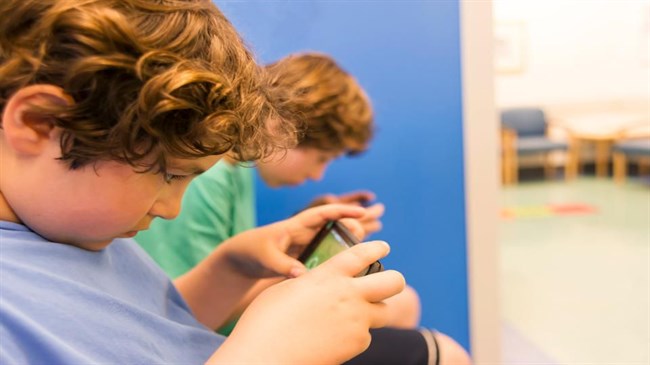A new study on children across the US, published in The Lancet Child & Adolescent Health, found that when they spend more than two hours on screens every day, they tend to perform more poorly on tests of cognition. It may not come as a total shock, given the research in recent years — and much anecdotal evidence — but it is nice to have more confirmation in the form of research findings, forbes.com reported.
The study, by researchers at Children’s Hospital of Eastern Ontario Research Institute, looked at data from 4,500 children aged 8-11 from 20 locations across the US. Their parents answered questions about their usual screen use, their sleep, and time spent in physical activity. The children also completed a cognitive test, which measured executive function, attention, working memory, episodic memory, language, and processing speed.
Not many of the kids met the current recommendations for screen time (two hours or less per day), sleep (9-11 hours/night), or physical activity (60 minute/day).
Only half got the recommended amount of sleep, 37 percent met screen time recommendations, and 18 percent met the exercise recommendation. Almost 30 percent didn’t meet any; five percent met all three. The average amount of screen time per day was 3.6 hours.
Interestingly, meeting only the physical activity recommendation but not the other two (that is, kids who got the recommended amount of exercise but not screen time or sleep) showed no connection with cognition — which is odd, since exercise is well known to benefit cognition. It’s possible that even if a child is exercising, spending too much time on screens and not sleeping enough could override the benefit derived from physical activity.
Indeed, meeting only the screen time recommendation (getting less than two hours) was linked to higher scores on the cognitive tests. Better still was meeting both the screen time and sleep recommendations — this combination had the strongest correlation with cognitive function.
The authors tried to account for variables that may affect the findings, like the parents’ education, household income, ethnicity, body mass index, and other factors. But it’s possible that there are other interactions going on, and after all, the study is only a correlation. Another limitation is that the data were only collected at the outset of the study, not over time.
But there’s some logic in the idea that screen time could affect cognition. The author of an accompanying editorial, University of Illinois’ Eduardo Esteban Bustamante, puts it well: “Each minute spent on screens necessarily displaces a minute from sleep or cognitively challenging activities.”
This seems fairly logical. And he added that stress recovery, or lack thereof, may further explain the connection.
“Through a stress-adaptation lens,” he wrote, “the strong associations between global cognition and meeting the recreational screen time recommendation found by [the authors] potentially reflect the interruption of the stress-recovery cycle necessary for growth in children who do not meet the recommendation.”
He added that adults tend to rationalize screen time, saying it’s educational or enriching. And it can be — but probably not enough to justify the amount of time most kids are using it. As Bustamante said, “It is tempting to take solace in findings that cognitively challenging screen activities can benefit cognition, but, if given a choice, most children already consistently and predictably choose more stimulating screen activities over less stimulating ones.”
Other studies in the last few years have suggested a consistent link between screen time and mental health issues, including depression and suicidality — which is a distinct but potentially related connection.
Some of the developers of apps and social media sites have more recently expressed regret for what they created, and even forbid their own kids from using them.
There’s probably a complex interaction between screen time, psychological and social health, physical activity, and cognition. While science is still figuring it out, go with what the research says so far — and what your gut says about what screen time may do to children’s developing brains.
Source: Irandaily



